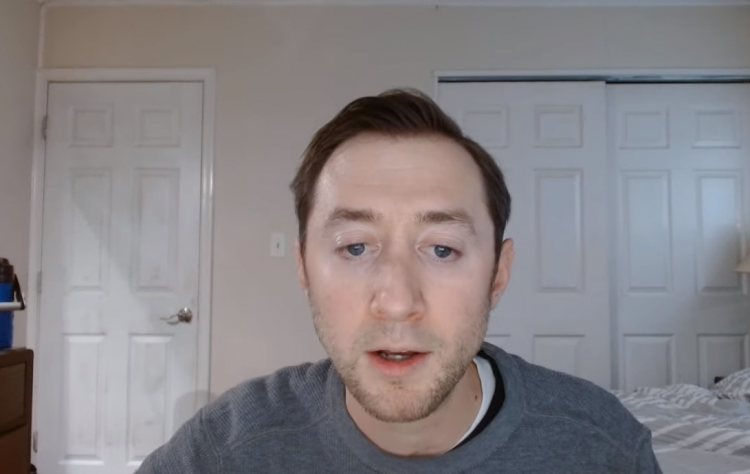Justin Mohn, 32, has been charged with the brutal murder of his father, Michael Mohn. The case took a particularly disturbing turn when it was revealed that Justin posted a video online displaying his father's decapitated head, alongside a tirade filled with conspiracy theories reminiscent of those propagated by QAnon, a far-right conspiracy group.
The gruesome nature of the crime, compounded by the accused's decision to broadcast his act on social media, has ignited discussions on the intersection of mental health, online radicalization, and the responsibilities of digital platforms.
According to authorities, Mohn was arrested approximately 100 miles from the scene, facing charges of first-degree murder, abuse of a corpse, and possessing an instrument of crime with intent. "He was arraigned at 4 a.m. and denied bail," Capt. Pete Feeney of the Middletown Township Police confirmed, underscoring the gravity of the charges laid against him.
The catalyst for the investigation was a macabre video posted on YouTube, where Mohn allegedly displayed his father's decapitated head, while espousing extremist views. The video, titled "Mohn's Militia - Call To Arms For American Patriots," showed Mohn holding what appeared to be his father's head, first in a plastic bag and later in a cooking pot, while launching into a tirade against various societal groups and political figures.
In his monologue, Mohn labeled his father, a 20-year federal employee, a traitor, advocating for the execution of federal officials and attacking the administration of President Joe Biden, as well as various social movements. The video was swiftly removed by YouTube for violating its policy against graphic violence, with a spokesperson stating, "The video was removed for violating our graphic violence policy... Our teams are closely tracking to remove any re-uploads of the video."
The discovery of Michael Mohn's body was made by his wife, Denice Mohn, who found him in a downstairs bathroom, decapitated, with a significant amount of blood surrounding the scene. "A machete and a large kitchen knife were found in the bathtub," the police complaint detailed, painting a grisly picture of the crime scene.
Justin Mohn's history of legal battles and social media activity reveals a troubled individual. He has previously filed lawsuits against federal agencies and his former employer, Progressive Insurance, alleging wrongful termination and discrimination. His self-published works and music, often touching on themes of dystopia and revolution, hint at a deep-seated discontent with societal structures.
A QAnon believer
Justin's descent into the world of conspiracy theories wasn't a sudden occurrence. Over the years, he self-published numerous books and songs that hinted at his growing alignment with QAnon ideologies. One of his publications, a pamphlet titled "America's Coming Bloody Revolution," chillingly described scenarios of him killing his own family members, predicting a violent upheaval against what he perceived as a corrupt system.
His writings and music also touched upon themes such as Satanism, government corruption, and societal decay, often blurring the lines between fiction and his personal beliefs. His book "The Second Messiah: King of Earth" delved into tales of satanic cults and corrupt presidential candidates, while his music titles like "Justin's Stalkers" and "Mommunist the Communist" reflected his tumultuous inner world.
Justin's actions and beliefs shed light on the dangerous influence of conspiracy theories and how they can drive individuals to commit heinous acts. The video, which was promptly removed by YouTube for violating policies against graphic violence and violent extremism, serves as a grim reminder of the potential real-world consequences of such ideologies.
As the case unfolds, the broader implications of such a heinous act are being scrutinized. Questions are being raised about the role of online platforms in policing content, the potential for social media to serve as a catalyst for radicalization, and the adequacy of mental health support systems.
As the community grapples with the shock and grief of this unfathomable act, the focus turns to understanding the underlying factors that lead to such tragedies, in hopes of preventing future occurrences. The case against Justin Mohn continues to develop, with the legal system tasked with unraveling the complexities of this disturbing event.




